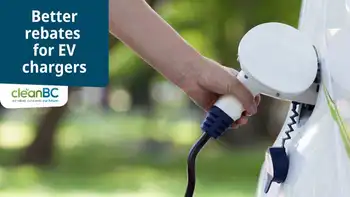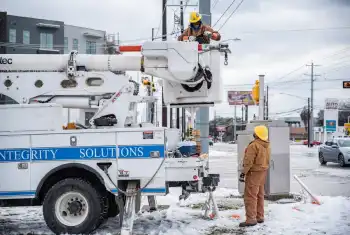Newfoundland to start biogas and net metering projects
By Government of Newfoundland and Labrador
Electrical Testing & Commissioning of Power Systems
Our customized live online or in‑person group training can be delivered to your staff at your location.

- Live Online
- 12 hours Instructor-led
- Group Training Available
“Our government is committed to further diversifying the electricity supply mix with renewable sources of energy. As outlined in our government’s energy plan, renewable energy development, such as biogas, will support a sustainable clean energy future for Newfoundlanders and Labradorians. The biogas electricity generation pilot program will encourage the use of biogas resources in Newfoundland and Labrador, and generate a consistent supply of electricity for the province,” says Derrick Dalley, Minister of Natural Resources.
Biogas is a renewable energy source that generates electricity from raw materials such as landfill and agricultural waste. Biogas is rich in methane which is a greenhouse gas. Burning biogas as an electricity fuel source reduces its greenhouse gas impact and creates economic value from a waste product.
“Electricity generated from the biogas pilot program will result in various environmental benefits, including the reduction of greenhouse gas emissions. This program demonstrates our government’s commitment to mitigating the effects of climate change," says Vaughn Granter, Minister Responsible for the Office of Climate Change and Energy Efficiency.
The biogas program will be monitored to ensure it maximizes benefits from the provinceÂ’s energy resources while also providing benefits to biogas producers.
In addition to the biogas pilot program, Minister Dalley also announced that Navigant Consulting Limited has been selected to research relevant standard industry practices and provide guidance on developing a proposed net metering policy which will also allow small-scale renewable energy sources to be fed into the provinceÂ’s electricity grid. The contract is valued at $50,760.
“This work is the next logical step in developing a net metering policy that reflects best practices and lessons learned from other jurisdictions. We have been working with Newfoundland and Labrador Hydro and Newfoundland Power on a framework for the net metering policy and have also met with staff of the Public Utilities Board to discuss implementation issues. Any policy put in place will provide value for ratepayers, and will be designed to meet the needs of the majority of homeowners in Newfoundland and Labrador,” says Minister Dalley. Both the biogas and net metering initiatives are commitments outlined in the provincial energy plan and help diversify the energy sector.
QUICK FACTS
- The Honourable Derrick Dalley, Minister of Natural Resources, announced that the Provincial Government will be undertaking a biogas electricity generation pilot program for Newfoundland.
- The pilot program will encourage the use of biogas resources in Newfoundland and Labrador, and generate a consistent supply of electricity for the province. This program will assist in reducing greenhouse gas emissions, create economic value from a waste product, and further diversify the provincial energy supply mix.
- Biogas electricity generation is considered a mature and proven energy technology and is currently being used in other parts of North America and in Europe.
- Minister Dalley also announced that Navigant Consulting Limited has been selected to research relevant standard industry practices, and provide guidance on developing a proposed net metering policy. Navigant Consulting Limited demonstrated an excellent understanding of the provincial and national electricity sector and the project team possesses the technical expertise required to complete this work. The contract is valued at $50,760.
- Both the biogas and net metering initiatives are commitments outlined in the provincial energy plan and help diversify the energy sector.











